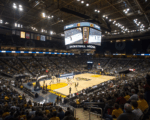When it comes to fitness performance and recovery, what you eat after a workout matters. For athletes, fitness enthusiasts, and anyone committed to leading a healthy lifestyle, post-gym nutrition is vital for muscle repair, endurance, and enhancing overall performance. If you’ve just finished an intense gym session, here’s how to refuel your body effectively.
Why Post-Workout Nutrition is Important
After a workout, your body is in repair mode. Your muscle glycogen stores are depleted, your muscles have tiny tears from exertion, and your energy reserves are low. Without proper nourishment, you risk slowing down recovery, minimizing muscle gains, and limiting your endurance for future workouts.
Post-workout nutrition replenishes glycogen stores, stimulates muscle recovery and growth, and helps your body adapt to training. To optimize the benefits, eat within 30 to 60 minutes after exercising.
The Key Components of a Post-Workout Meal
Your post-gym meal should focus on balancing macronutrients that support recovery and performance:
1. Protein for Muscle Repair
Protein is critical for muscle repair and growth. Aim to consume 20–30 grams of protein after a workout, depending on your body weight and activity level. High-quality protein sources are rich in amino acids, specifically leucine, which stimulates muscle protein synthesis.
Great protein choices include:
- Grilled chicken breast
- Eggs or egg whites
- Greek yogurt
- Protein shakes (whey, pea, or casein-based)
- Tofu or tempeh for plant-based diets
2. Carbohydrates for Energy Replenishment
During workouts, your body uses glycogen, its primary fuel source. Consuming carbohydrates post-workout helps replenish these stores, giving your body the energy it needs to recover and prepare for the next session.
Opt for complex carbs such as:
- Sweet potatoes
- Brown rice or quinoa
- Whole-grain bread or oatmeal
- Fruits like bananas, berries, or apples
Pairing carbs with protein in a roughly 3-to-1 or 4-to-1 ratio is an effective strategy for optimal glycogen replenishment and muscle recovery.
3. Healthy Fats in Moderation
Although fats slow digestion, they don’t interfere with muscle recovery when consumed in moderation. A small amount of healthy fat can support overall nutrient absorption and make meals more satisfying.
Examples of good fats include:
- Avocado
- Nuts and seeds (e.g., almonds, chia seeds)
- Olive oil
- Nut butters (in small portions)
4. Hydration
Don’t overlook the importance of rehydrating after a workout. Sweating causes you to lose water and key electrolytes, which are crucial for muscle function and endurance. Drink plenty of water or consider an electrolyte-enhanced drink if you’ve had an especially intense or long workout session.
5. Micronutrients for Recovery
For optimal recovery, include foods rich in recovery-supporting vitamins and minerals such as magnesium, potassium, and antioxidants. These nutrients reduce inflammation and repair tissue damage.
Sources of essential micronutrients:
- Spinach, kale, or other leafy greens
- Citrus fruits for vitamin C
- Pumpkin seeds (rich in magnesium and zinc)
Sample Post-Workout Meals
Take the guesswork out of post-gym nutrition with these meal ideas:
For Muscle Gain:
- Grilled salmon with quinoa and roasted vegetables
- Protein smoothie with whey protein, banana, peanut butter, and almond milk
- Scrambled eggs with whole-grain toast and avocado slices
For Endurance:
- Oatmeal topped with Greek yogurt, berries, and honey
- Brown rice with chicken breast and steamed broccoli
- Whole-grain wrap filled with turkey, hummus, and mixed greens
For Overall Performance:
- Cottage cheese with pineapple and toasted almonds
- A smoothie bowl with mixed fruits, protein powder, chia seeds, and granola
- Sweet potato and black bean bowl with a sprinkle of goat cheese
Common Mistakes to Avoid
To maximize your fitness gains, steer clear of these common post-gym nutrition pitfalls:
- Skipping Your Post-Workout Meal
Delayed eating can slow down muscle recovery and impair performance in future workouts. Always refuel within an hour of exercising.
- Relying Solely on Protein
While protein is vital, neglecting carbohydrates will leave your glycogen stores depleted, affecting endurance and energy levels.
- Overeating Fats
Healthy fats are essential, but they shouldn’t dominate your post-gym meal. Too much fat might delay the digestion of protein and carbs.
- Not Hydrating Properly
Skipping hydration can lead to muscle cramps, fatigue, and suboptimal recovery.
Build a Routine That Works for You
Making post-workout nutrition part of your routine is as much a mental commitment as a physical one. Prep healthy meals in advance, keep protein snacks like shakes and bars handy, and stay consistent in your approach.
If you’re serious about achieving your fitness goals, your diet is just as important as your workout routine. With the right post-gym nutrition, you’ll give your body what it needs to recover, grow stronger, and perform at its peak level every day.
Start fueling your fitness goals today and feel the difference in every rep, run, and recovery.








